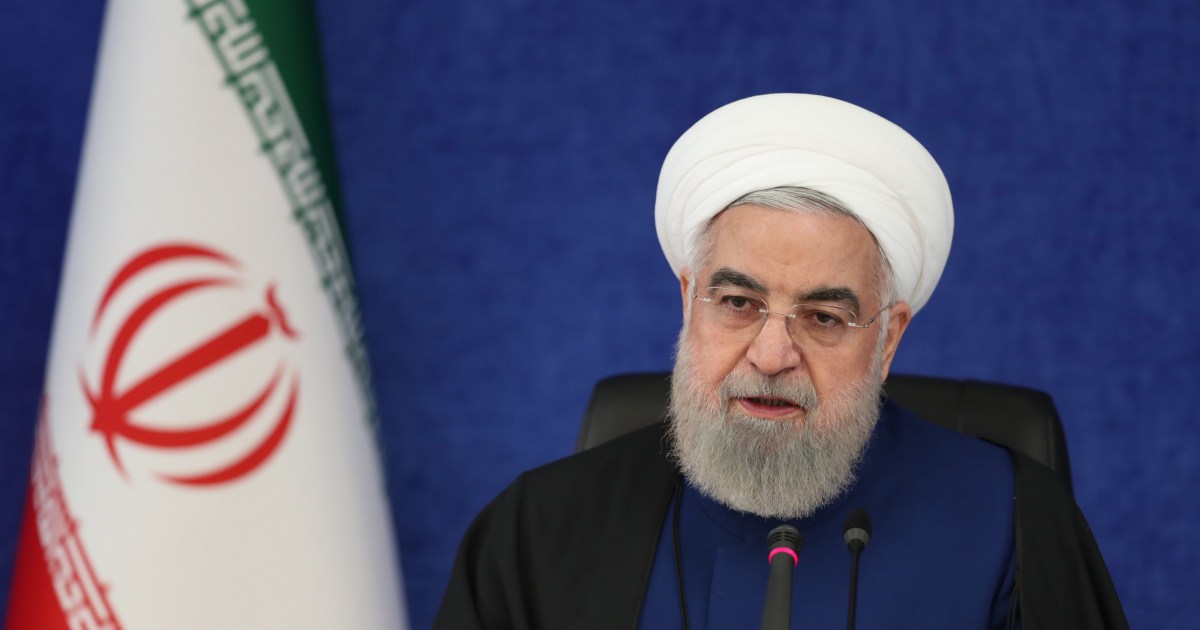Tehran has called on Washington to take a decision on whether it will fulfill its obligations in the nuclear file before the end of the agreement with the International Atomic Energy Agency, and the Foreign Minister confirmed that the ball is in the court of the United States.
President Hassan Rouhani said that it was agreed to lift the main and basic sanctions from his country, and indicated that negotiations are continuing in Vienna to complete the course.
Rouhani stressed that the Americans and Europeans are aware that they have no choice but to lift the sanctions and return to the nuclear agreement.
For his part, Foreign Minister Mohammad Javad Zarif said that the ball is in Washington's court, not Tehran, and that the Biden administration should make a decision regarding adherence to the law and the nuclear agreement.
"As we try to revive the nuclear deal in Vienna, we have to remember how it all began. Three years ago from today, a fired clown (referring to former US President Donald Trump) violated US commitments. Today, the US president must ( Biden has to decide whether the United States will continue to break the law or abide by the law. The responsibility rests with the United States, not Iran. "
For his part, Abbas Araghchi, chief negotiator and assistant foreign minister, said that he hoped the nuclear negotiations would progress in Vienna so that there would be no need to extend the deadline of the agreement concluded with the International Atomic Energy Agency regarding inspections of his country's nuclear facilities.
The chief Iranian negotiator added that his country would study extending this agreement, if necessary, in time before it expires on May 24.
In February, the IAEA reached an agreement with Iran to keep surveillance cameras for a period of up to 3 months, after the Iranian parliament decided to stop work on the additional annex, which means ending the sudden inspections.
Tehran announced that it would implement the additional supplement if the nuclear agreement was fully activated and all sanctions were lifted.
International positions
The US President had expressed his belief that the Iranians were serious about negotiating in Vienna, "but it is not clear to what extent."
He indicated during a press conference at the White House that their (the Iranians) seriousness and their willingness to do the necessary are two different things, and that the discussions are still continuing.
Meanwhile, White House spokeswoman Jane Saki said that her country will not lift sanctions on Iran until after it shows willingness to return to the nuclear deal.
Sacchi added that the indirect nuclear talks in Vienna had made progress over the past weeks, and that Washington had touched a positive sign.
A European diplomatic source had said that the task of the parties to the Iranian nuclear agreement in Vienna is complicated because there are many disputed details about them, and he expected the round to be longer than its predecessors.
For his part, Enrique Mora, the European Union representative in the negotiations, said that there was no specific date for reaching an agreement, but time "is not in everyone's interest."
As for the Russian representative, Mikhail Ulyanov, he said that the talks are continuing, and Washington should "fully comply with Security Council Resolution 2231" in order to return to the nuclear agreement.
The meeting of the Joint Committee for the Tehran Nuclear Agreement in Vienna ended Friday with an agreement to start technical talks, and the Iranian Foreign Ministry said that the technical committees will continue the nuclear negotiations to formulate the drafts of the agreement.
Indirect negotiations began at the beginning of last April in the Austrian capital (Vienna) between the United States and Iran, mediated by the Europeans and the rest of the signatories of the 2015 agreement, with the aim of preventing Tehran from developing a nuclear weapon.
The essence of the nuclear agreement is for Iran to commit to taking steps to restrict its nuclear program, making it difficult for it to obtain fissile materials for a nuclear weapon in exchange for relief from US and European sanctions and those imposed by the United Nations.
Tehran has always denied seeking nuclear weapons.

